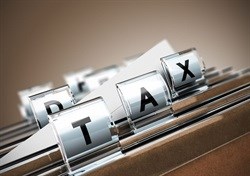In his Medium Term Budget speech, Finance Minister Nene emphasised that government's revenue shortfall is of paramount importance.
Taxation as a method of revenue generation is most likely to be made use of. The media and tax commentators have speculated widely on how tax could reduce or eradicate this shortfall. Below are a few options that address this in a somewhat hypothetical manner.
Personal income tax
The Minister could opt to increase the top marginal rate of tax from 40% to a possible 45% (or somewhere between 40% and 45%). The top rate of tax of 40% has been around for a number of years. However, this option should be very carefully considered in a country such as South Africa with a substantially skewed income distribution. The further downside is that we will be falling back to the high tax rates that applied in the 1980s. The ministerial economists could, however, also decide to let the burden fall more heavily on the upper income levels by increasing the progressivity rate, i.e. by increasing the burden curve steeper towards the higher income earners.
The disadvantage of this option is that you kill the geese that lay the golden eggs, thereby incentivising the capital rich labour market to exit the labour market of South Africa. That in itself could have effects on tax compliance morality in an already heavily tax burdened country such as South Africa. Another effect could be that other vehicles may possibly be explored which are subject to lower tax rates and/or established in lower tax rate jurisdictions.
Corporate tax
As it has been a stated objective of the Ministry to lower corporate income tax rates, we may not see substantial or any movement in this respect. The Minister may, however, opt to extend the current focus of the revenue authorities to enhance sector specialisation ensuring optimisation from the current tax base.
With the increased emphasis globally on the transfer pricing regime, especially following the various reports of the OECD around country-by-country reporting, and the David Committee's follow through report on the initial recommendations of the OECD in this regard in December 2014, we may well expect that the focus thereon will remain constant. Global cooperation between revenue authorities, OECD members or not, will become more prevalent in future and we may expect to see more formalised and harsher cooperation agreements between countries.
Value-added tax
The Minister also has the option to increase the VAT rate from say 14% to say 15%, which will produce a significant yield. This is a possibility, but could be politically damaging due to its perceived impact on the poor through its regressive nature as a consumption tax which taxes the poor and rich equally if the spend is the same. The biggest dilemma of the two has historically seemed to be the perceived political agenda. The ruling party may find itself defending such a decision in debates with the unions and broad base voters. Although, it should be added that some studies have shown that the regressive nature of a VAT system may in fact be overestimated.
Fuel levy
It is very likely that the government will seek to increase the general fuel levy proportionally higher than in the past as it only rose by 12c/litre last year. Using this as a revenue instrument is questionable and one should preferably revisit the original purpose for the imposition of the fuel levy in the first instance.
Sin taxes validate the saying that 'only two things in this world is certain, namely death and taxes'. However, it perhaps takes this saying further in that 'a further thing that is (almost certain) is that sin taxes are made to increase'. This is especially so in a country such as South Africa where healthy living has increasing come to be under the spotlight and the tax base of sin taxes is continuously sought to be increased to reduce or eradicate the use of products subject to sin taxes. History has shown that we may potentially expect a higher than usual increase, especially in light of South Africa having a lower excise duty on alcohol and cigarettes than many other countries globally.
Wealth taxes
It has been suggested that a wealth tax may be introduced on high net worth individuals earning over a certain amount per annum. Considering this suggestion in the context of 'brain drain' or the mobility of high net worth individuals (both inbound and outbound), the already high marginal personal income tax rates, and the existing taxes on wealth such as the capital gains tax, Estate Duty; and arguable donations tax, makes this a difficult sell in the current South African economic and tax climate.
Incentivising savings
The Ministry has a number of options in this regard, all of which should involve extensive deliberations with the banking and insurance industries and taxation and economic specialists. A tax free savings account is likely to be introduced which will grant increased tax benefits to individuals to save up to certain amounts in a specific year (with lifetime limits). To some degree, this will have the effect to offset the higher income tax rates that are expected through bracket creep.































